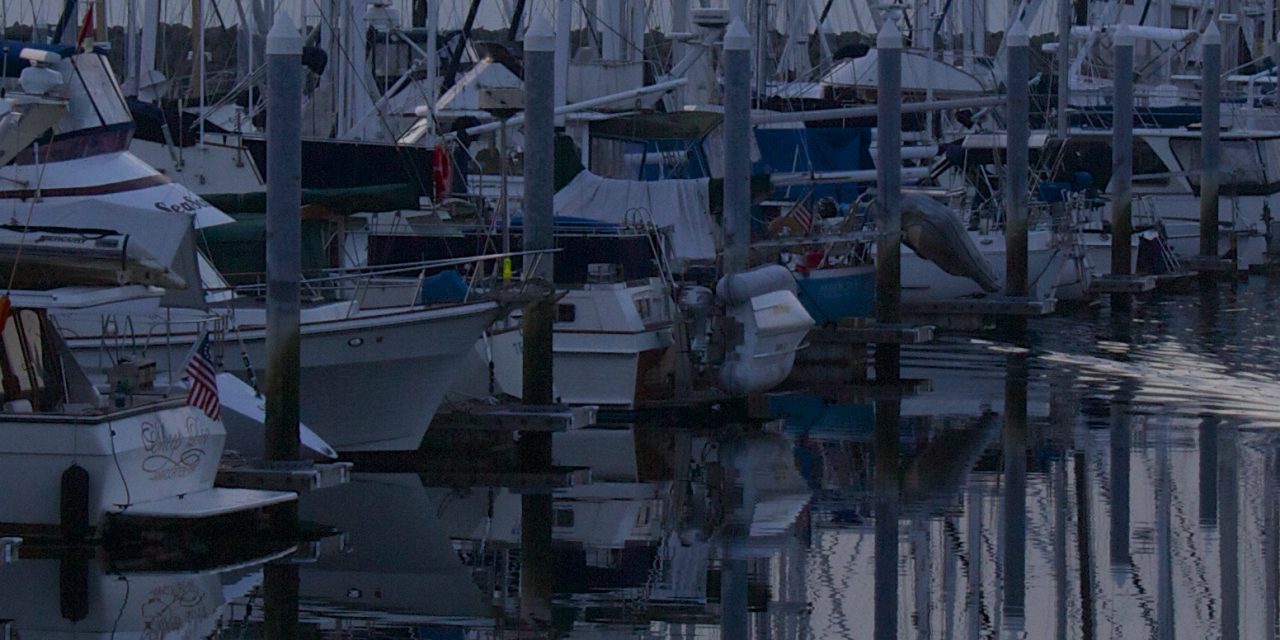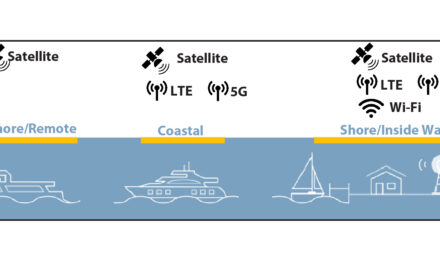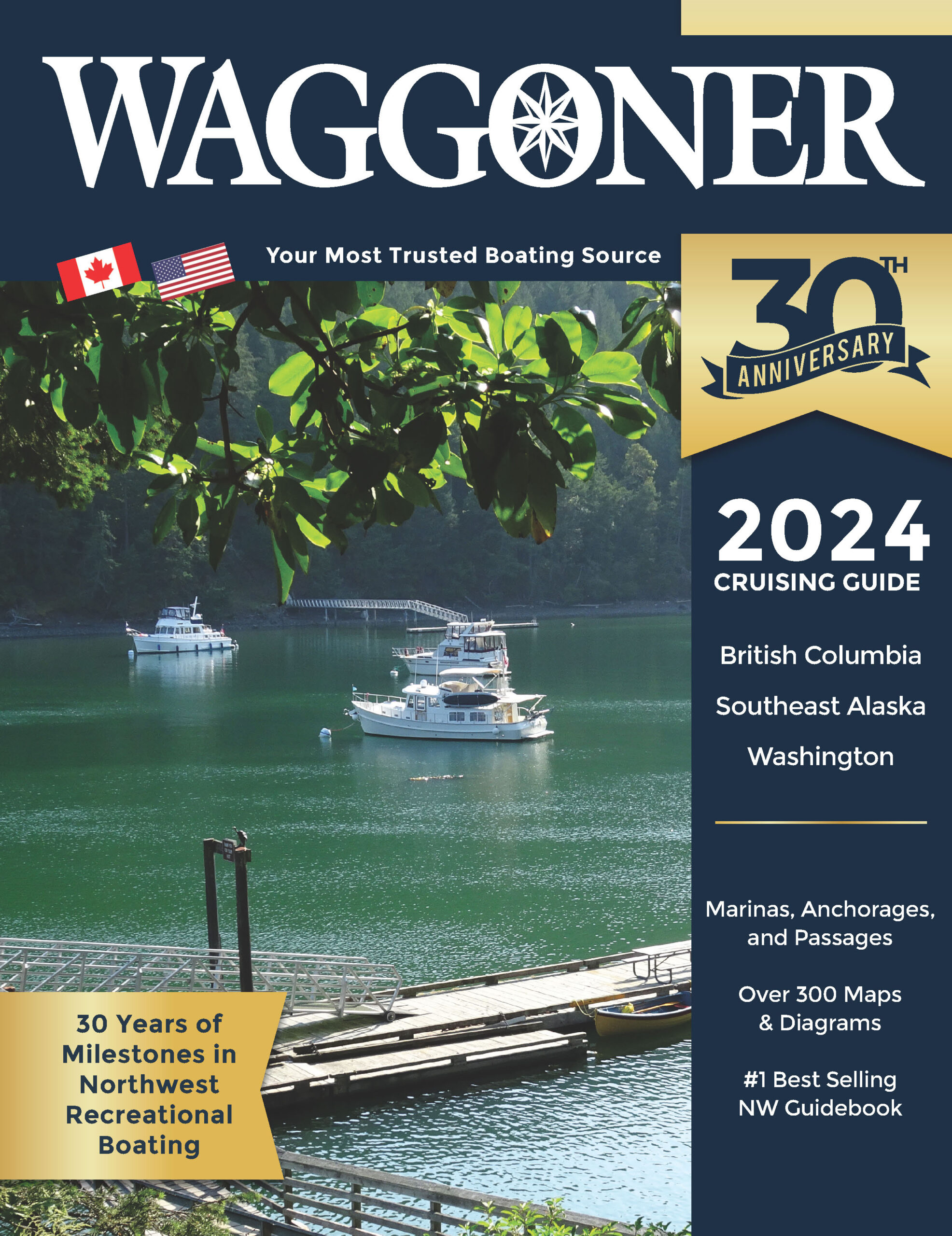By Blair Englebrecht –Boating Programs Manager, Puget Soundkeeper Alliance
Teeming beneath the docks and ship hulls of Washington marinas are some of the most sensitive and important resources in the state. By their very nature marinas can hover over shellfish larvae, juvenile fishes like salmon, and other essential and sensitive sea life that need healthy waters to thrive. It is also necessary for marinas to carry and use materials or perform maintenance tasks that could be harmful to these resources and surrounding water quality without the use of proper best management practices (BMP’s). That’s why in 2005, Puget Soundkeeper Alliance partnered with Envirostars and other state agencies and non-profits to launch the Clean Marina Washington program. This program is a free, incentive-based certification program in which marinas assess their operations and implement improvements to better protect the environment. To date, 81 marinas have been certified, which means one third of the marina’s in the state have stepped up to create a healthier environment for our aquatic ecosystems.

In order to become certified, marinas must first complete an evaluation checklist. The list will tell them if they are ready to begin the application process. Along with following their existing environmental permit requirements, marinas have to follow a list of Clean Marina rules. The requirements can be summarized in two areas: marina facility policies and tracking systems, and boater policy and signage. The reasoning behind this approach is that first we want to clean the marina, and secondly we want to help educate and empower the boater to help keep it clean.
Examples of Clean Marina requirements include:
- Hazardous Waste Disposal. In order to meet the marina facility policies and tracking systems requirements, marinas must handle and dispose of all hazardous waste correctly. This can mean prohibiting the storage of paints in dockboxes to making a commitment to reducing unnecessary usage of hazardous products.
- Marine Debris Cleanup. One of the most visual and unsightly pollutants at marinas is marine debris, certified clean marinas must commit to cleaning their waters of debris on a regular basis. Furthermore, in order to help stop marine debris at the source they must also provide and clearly label recycling and trash bins, and some choose to go the extra mile and provide compost bins and oil recycling.
- Oil Spill Prevention. Perhaps more difficult to clean than marine debris, and essential to prevent, is pollution from oil and diesel spills. Even small drips add up and so Clean Marina’s do things like handing absorbent pads to boaters with the fuel nozzle, and training residents in proper fueling techniques. It’s our hope through the use of BMP’s like these that the chance for a spill is greatly decreased, but it is always best to be well prepared. As such, Clean Marina’s must also have adequate spill response equipment available where needed, and staff trained in spill response.
- Boater Education. A key proponent to the success of the Clean Marina program is the boater education. Marinas have such a wonderful opportunity to leave an imprint on the boaters who pass through their facilities. We like to say, Clean Marinas make clean boaters. Not only does this aspect of the program make it easier for the facility to upkeep the requirements by not having to clean up after tenants, but it means that when boaters venture outside marina waters they are more aware of the potential impact they have on the environment around them. To accomplish this, the program provides free educational materials for marinas to distribute. These include rack cards detailing boating BMP’s and No Discharge Zone compliance, pumpout adapters to minimize spills, and personal spill kits for boaters to keep in case of emergency. The Clean Marina Program also provides free signage for facilities, including; spills aren’t slick signage, BMP posters, Clean Marina signs and burgees, and more to come! In combination with these materials, we expect marinas to adopt the Clean Marina/Department of Ecology’s BMP’s formally into their own policies for tenants and contractors, and take advantage of things like newsletters or member meetings to train tenants on pollution prevention.

Following all of the Clean Marina requirements and becoming certified is not only a great benefit to the environment, but a great benefit to the marinas themselves. Through the program marinas have access to free technical advice from:
- Puget Soundkeeper Alliance
- Department of Health
- Department of Ecology
- Envirostars
- Clean Vessel Act Progam
- Northwest Marine Trade Association
- Washington Sea Grant
They also get free advertising in boating publications, and on the Clean Marina website. We have found that through following the program, marinas attract quality clientele, have fewer vacancies, and are often recognized for their work.
Narrows Marina – A Clean Marina Success Story
One such marina is the Narrows Marina in Tacoma, Washington. When Gordon Rush and Scott Wagner set out to convert the century old lumber mill site into a marina with a new fuel dock, sewer pump out facility, restaurant, craft brewery, transient dock, and event space, they did so with the environment in mind. “It has been our goal since we got here to clean, repair, and improve the property so it will be available for future generations to enjoy as we have,” says Wagner, “We started early on working with Clean Marina and Envirostars to improve our operating procedures in a way that benefited the environment as well as our business.” After being certified in 2008, Narrows Marina went on to win the Marina Dockage Magazine Marina of the Year title in 2014. Wagner said, “The award was won in no small part because of the changes and procedures put in place with the help of Troy Rowan with Pierce County and Puget Soundkeepers.”
The benefits of the Clean Marina program are not only measureable in dollars and cents or free advertisements alone. They are first and foremost measured in environmental quality. Puget Soundkeeper has received several testimonials and observed first-hand the improvements in the environment around clean marinas. Facilities that were once surrounded by dead ecosystems, now thrive with healthy life. Where there were once grey lifeless sea floors, there are now shellfish, juvenile fishes, wading birds, green plant life, and in some cases even river otters who rely on shellfish for food. This means not only do boat owners want to call marinas home, but so does the marine life we are trying to protect.
Taking the Plunge
In Clean Marina owners and their boaters, the Puget Sound has a great ally. On a recent visit to Gig Harbor Marina, owner Ron Roark and Yard Manager Jeff Broders, pulled their entire staff off the job for a Clean Marina training they requested themselves. This is just one of many examples of how Clean Marinas are leading the industry into a new clean era, in which marinas and boatyards live in harmony with the waters of the Puget Sound.

If you would like to learn more, see a list of certified Clean Marinas, refer your marina, or are interested in applying, please contact Blair Englebrecht: blair@pugetsoundkeeper.org or visit www.cleanmarinawashington.org. Upcoming changes in 2020 include an exciting new website, new educational materials, and the reintroduction of the Clean Marina of the Year Award. Additionally, if you would like to donate to help fund the staffing of this program, or learn more about the other work Puget Soundkeepers does to protect the Sound, please visit www.pugetsoundkeeper.org. In 2018 alone, Puget Soundkeeper conducted 78 boat, canoe, and kayak patrols of Puget Sound waterways, removed over 13,557 lbs of marine debris, and directed $307,500 to restoration and mitigation projects in the region.







